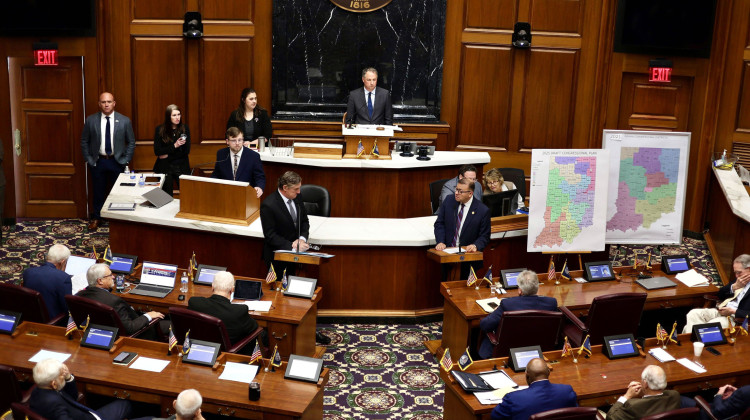State officials announced Thursday that they will extend the state’s high-risk insurance pool through the end of January to accommodate Hoosiers who have been unable to enroll in coverage through the federal marketplace.
The Indiana Comprehensive Health Insurance Association – often called ICHIA – provides coverage for roughly 6,800 individuals with significant medical needs. The program was scheduled to shut down at the end of the year.
“The state of Indiana will ensure that these Hoosiers, who are facing significant health care challenges, maintain their health coverage until the problems with the federal marketplace are resolved,” Gov. Mike Pence said in a statement Thursday. “While problems enrolling are an inconvenience to some, they could be a matter of life and death for these Hoosiers.”
Indiana Department of Insurance Commissioner Steve Robertson issued the order to extend the pool at Pence’s urging.
Robertson also sent a letter to U.S. Health and Human Services Secretary Kathleen Sebelius asking for assurance that the federal exchange – a marketplace for coverage through the Affordable Care Act – will be fully operational by Feb. 1 if not sooner.
State Rep. Ed Delaney of Indianapolis, one of the leading Democrats in the state’s health care debate, said Thursday that state officials made a good decision to extend the high-risk insurance pool. But he said a better choice would be for Indiana to be operating its own marketplace.
Pence and former Gov. Mitch Daniels announced last year that Indiana would not create its own exchange under the Affordable Care Act, leaving the job to federal officials. Thirty-five other states made similar decisions. The resulting federal system has been plagued with technological problems that left many Americans unable to sign up for insurance. Meanwhile, many states that developed their own systems have had thousands of people sign up.
“These circumstances again point out the need for us to work with the federal government in setting up an exchange operated by the state of Indiana,” Delaney said. “I think we could do a better job than Washington in using the machinery of the Affordable Care Act to help protect the lives of Hoosiers. The governor needs to reconsider his actions in refusing to have a state-run exchange.”
The state created its high-risk insurance pool in 1982 to provide health care options for seriously ill Hoosiers who did not have access to coverage in the private market. Its users tend to have significant health care problems including cancer, hemophilia, HIV/AIDS or organ failure.
Last spring, the General Assembly passed a law dissolving the program because the patients would become eligible to purchase coverage through the federal marketplace. But state officials are now worried those patients won’t be able to sign up in time.
Because the state supplements the cost of the insurance, it will spend $6.3 million to extend the coverage for one month.
State officials said that if problems with the federal marketplace continues, they will reconsider extending the coverage again.
 DONATE
DONATE








 Support WFYI. We can't do it without you.
Support WFYI. We can't do it without you.